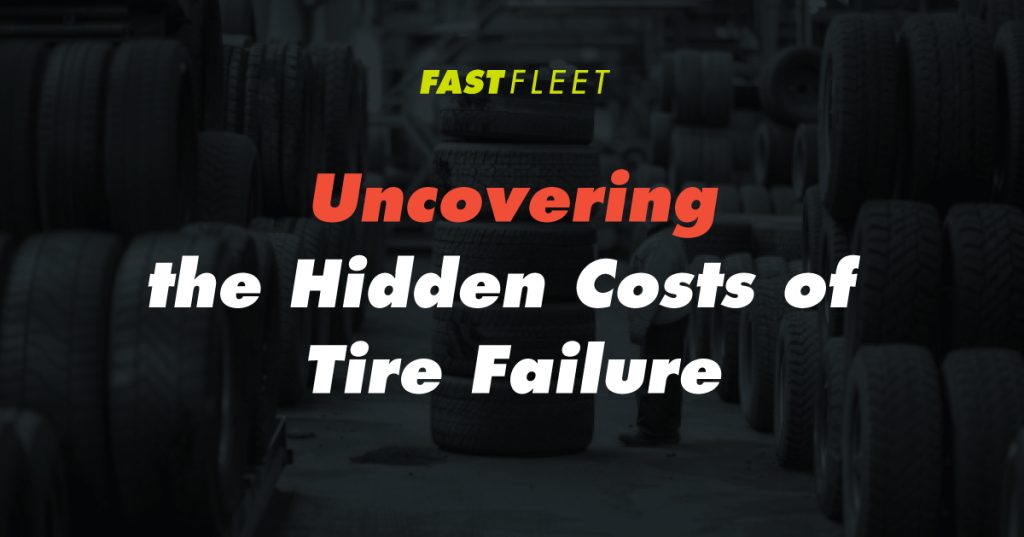Tires are a pivotal component of truck safety and operational efficiency, acting as the crucial link between the vehicle and the road. Despite their importance, the ramifications of tire failures are often underestimated and overlooked.
This blog post aims to shed light on the hidden costs associated with tire failures, emphasizing not just the immediate expenses but also the long-term economic and safety consequences that can severely impact trucking operations.
The Immediate Economic Impact of Tire Failure
Direct Costs:
Tire failures lead to immediate financial burdens, including the cost of replacing the damaged tire and the associated service fees.
These expenses can escalate quickly, especially if specialized tires or services are required for large commercial trucks.
Impact of Downtime:
Beyond the direct costs, the downtime caused by tire failures can be particularly detrimental. Trucks sidelined due to tire issues mean delays in cargo delivery, which can breach contract terms and result in lost revenue.
The ripple effect of these delays can disrupt logistics and schedules across multiple sectors dependent on timely freight deliveries.
Long-Term Economic Effects
Increased Maintenance Costs:
Frequent tire failures can signal underlying issues with truck maintenance practices, leading to increased costs in upkeep.
Regularly encountering tire problems may necessitate more comprehensive and frequent vehicle inspections and repairs, thus inflating maintenance budgets.
Impact on Insurance Premiums:
Tire-related incidents often lead to insurance claims, which can drive up premiums over time.
Consistent claims can also affect a company’s risk profile, making it more expensive to secure comprehensive insurance coverage.
Safety Risks Associated with Tire Failure
Accidents and Driver Safety:
Tire failures are a significant hazard on the roads, not only for truck drivers but for all road users. A blown tire can result in loss of vehicle control, leading to severe accidents.
The consequences of such incidents can range from minor vehicle damage to catastrophic injuries or fatalities.
Statistical Emphasis:
Data consistently shows that tire failures account for a substantial percentage of truck-related road incidents.
These statistics highlight the critical need for rigorous tire maintenance and monitoring to mitigate the risks associated with tire failures.
This detailed exploration underscores the broad and impactful consequences of tire failures, emphasizing the necessity for proactive measures and diligent maintenance to safeguard against these prevalent issues.
Preventative Measures and Best Practices
Routine Tire Maintenance:
To prevent tire failures, regular maintenance is crucial. This includes maintaining proper tire pressure, which not only ensures safety but also optimizes fuel efficiency.
Regular checks for tire tread depth and overall condition can catch early signs of wear and prevent more severe issues.
Monitoring Systems and Technologies:
Advancements in technology have led to the development of sophisticated tire monitoring systems that continuously assess tire health, providing real-time data on pressure and wear.
Implementing such technologies can preempt failures by alerting fleet managers to potential issues before they lead to breakdowns.
Effective tire management is not merely about addressing issues as they arise but involves a proactive approach to maintenance and monitoring.
Given the critical importance of tire integrity, we encourage all truck operators and fleet managers to review their current tire maintenance protocols.
Consulting with professionals, like those at Fast Fleet, can provide you with tailored advice and services to enhance the safety and efficiency of your operations.
Reach out to ensure that your fleet maintains optimal tire health and performance.
















